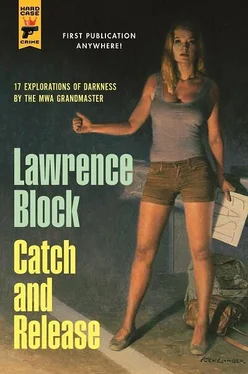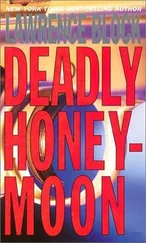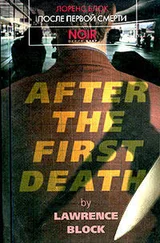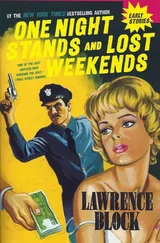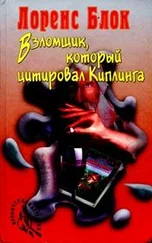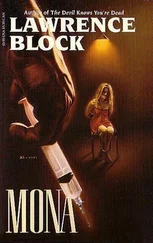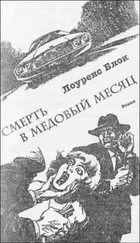“And how long did you have her, Policeman?”
“When I set up her husband,” he said, “I thought I’d wait a decent interval and marry the woman. But over the next several weeks I came to see why Walbeck cheated on her. It turned out the woman was a pain in the ass. The affair ran its course and ended, and she married someone else.”
“And you didn’t worry she would let slip how you’d arranged her husband’s death?”
“She never knew,” the policeman said. “As far as she was concerned, it was a death in the line of duty. He got a medal awarded posthumously and she got a generous widow’s pension.”
“Because she was such a generous widow,” the doctor suggested. “Did the old fellow fart again?”
“I think that was the fire.”
“I think it was the man himself,” the doctor said. “And what did you get, Policeman? A citation for bravery?”
“A commendation,” the policeman said, “and a promotion not long thereafter.”
“Virtue rewarded. And the other lady? Joanie Jellin, the convict’s wife?”
“I consoled her,” the policeman admitted. “And once again came to appreciate my late partner’s point of view. The woman did kindle the flames of lust. But I just spent a few afternoons with her and bowed out of the picture.”
“No keeping her company on conjugal visits?”
“None of that, no.”
“The flames of lust,” the soldier said, echoing the phrase the policeman had used. “They cast a nasty yellow glow, don’t they? Lust ruled your partner, ran his life and ran him out of it, but wasn’t it lust that drove all the parties in your story? You, certainly, and both of the women.”
“It was the story that came to mind,” the policeman said, “when the conversation turned to lust.”
“Lust,” the soldier mused. “Is it always about the sexual impulse? What about the lust for power? The lust for gold?”
“Metaphor,” the priest said. “If I am said to have a lust for gold, the man who so defines me is saying that my desire for gold has the urgency of a sexual urge, that I yearn for it and seek after it in a lustful manner.”
“And what of blood lust?” The soldier cleaned the dottle from his pipe, filled the bowl from his calfskin pouch, struck a wooden match and lit his pipe. “Is that a metaphor, or is it indeed sexual? I can think of an incident that suggests the latter.” He drew on his pipe. “I wonder if I should recount it. It’s not my story, not even in the sense that the priest’s story was his. That was told to him by one of the tale’s principals. Mine came to me by a less direct route.”
They considered this in silence, a silence broken at length by a low rumbling from the hearthside.
“Was that another fart?” the doctor wondered. “No, I believe it was a snore. The old man’s a whole impolite orchestra, isn’t he?” He sighed. “Tell your story, Soldier.”
I believe it was Robert E. Lee (said the soldier) who expressed the thought that it was just as well war was so horrible, or else we would like it too much. But it seems to me that we already like it to a considerable degree. Who doesn’t recall George Patton proclaiming his love for combat. “God help me, I love it!” he cried.
Or at least George C. Scott did, in his portrayal of Patton. Was that accurate, or do we owe some Hollywood screenwriter for the creation of this myth?
I’m not sure it matters. It’s clear Patton loved it, whether he ever said so or not. And, while it’s quite appropriate that he was played by Scott rather than, say, Alan Alda, I’m sure the man was not entirely lacking in sensitivity. He may have loved war, but he was very likely aware that he shouldn’t.
But people do, don’t they? Otherwise we wouldn’t have so many wars. They seem to retain their popularity down through the centuries, and for all that they grow ever more horrible, we do go on having them. Old men make wars, we are occasionally told, and young men have to fight them. The implication is that older men, safely lodged behind desks, feel free to make decisions that cost the unwilling lives of the young.
But does anyone genuinely think there would be fewer wars fought if younger men were their nations’ leaders? The reverse, I think, is far more likely. The young are more reckless, with others’ lives as well as their own. And it is indeed they who fight the wars, and die in them, because they are often so eager to do so.
I am not wholly without experience here. I saw combat in one war, and ordered men about in others. War is awful, certainly, but it is also quite wonderful. The two words once had the same meaning, did you know that? Awful and wonderful. The former we reserve now for that which we regard as especially bad, the latter for what seems especially good, yet they both have the same root meaning. Full of awe, full of wonder.
War’s all of that and more.
It is exciting, for one thing. Not always, as the monotony of it can be excruciating, but when it ceases to be boring it becomes very exciting indeed, and that excitement is heightened by the urgency of it all. One might be killed at any moment, so how can the body fail to be in a state of excitement? That, after all, is what adrenaline is for.
And there’s the camaraderie. Men working together, fighting together, united not merely in a common cause but in a matter of life and death. To do so seems to satisfy a fundamental human urge.
On top of that, there’s the freedom. Does that strike you as strange? I can see that it might, as there’s no one less at liberty in many ways than a soldier. His every action is in response to an order, and to defy a direct order is to court severe punishment. Yet this apparent slavery is freedom of a sort. One is free of the obligation to make decisions, free too of the past and the future. One’s family, one’s career, what one is going to do with one’s life — all of this disappears as one follows orders and gets through the day.
And, of course, there’s the chance to kill.
I wonder how many soldiers ever kill anybody. Relatively few have the opportunity. In any war, only a fraction of enlisted troops ever see combat, and fewer still ever have the enemy in their sights. And only some of those men take aim and pull the trigger. Some, it would appear, are reluctant to take the life of someone they don’t even know.
Others are not. And there are those who find they like it.
Lucas Hallam, if I may call him that, was to all appearances entirely normal prior to his service in the armed forces. He grew up in a small Midwestern town, with three brothers (two older than himself) and a younger sister. Aside from the usual childhood and adolescent stunts (throwing snowballs at cars, smoking in the lavatory) he was never in trouble, and in school he was an average student, in athletics an average participant. There are three childhood markers for profound antisocial behavior, as I understand it, and Luke, as far as anyone knew, had none of them. He did not wet the bed, he did not set fires, and he did not torture animals. (The pathological implications of the latter two are not hard to infer, but what has bedwetting to do with anything? Perhaps the doctor will enlighten me later.)
After graduating from high school, Luke looked at the vocational opportunities open to him, thought unenthusiastically of college, and joined the army. There was no war on when he enlisted, but there was by the time he finished basic training. He was a good soldier, and his eyesight was excellent and his hand-eye coordination superb. On the firing range he qualified as an Expert Rifleman, and he was assigned to a platoon of combat infantry and shipped overseas.
At the end of his hitch he was rotated back to the States, and eventually discharged. But by then he had been in combat any number of times, and had had enemy soldiers in his sights on innumerable occasions. He had no difficulty pulling the trigger, and his skills were such that he generally hit what he aimed at.
Читать дальше
